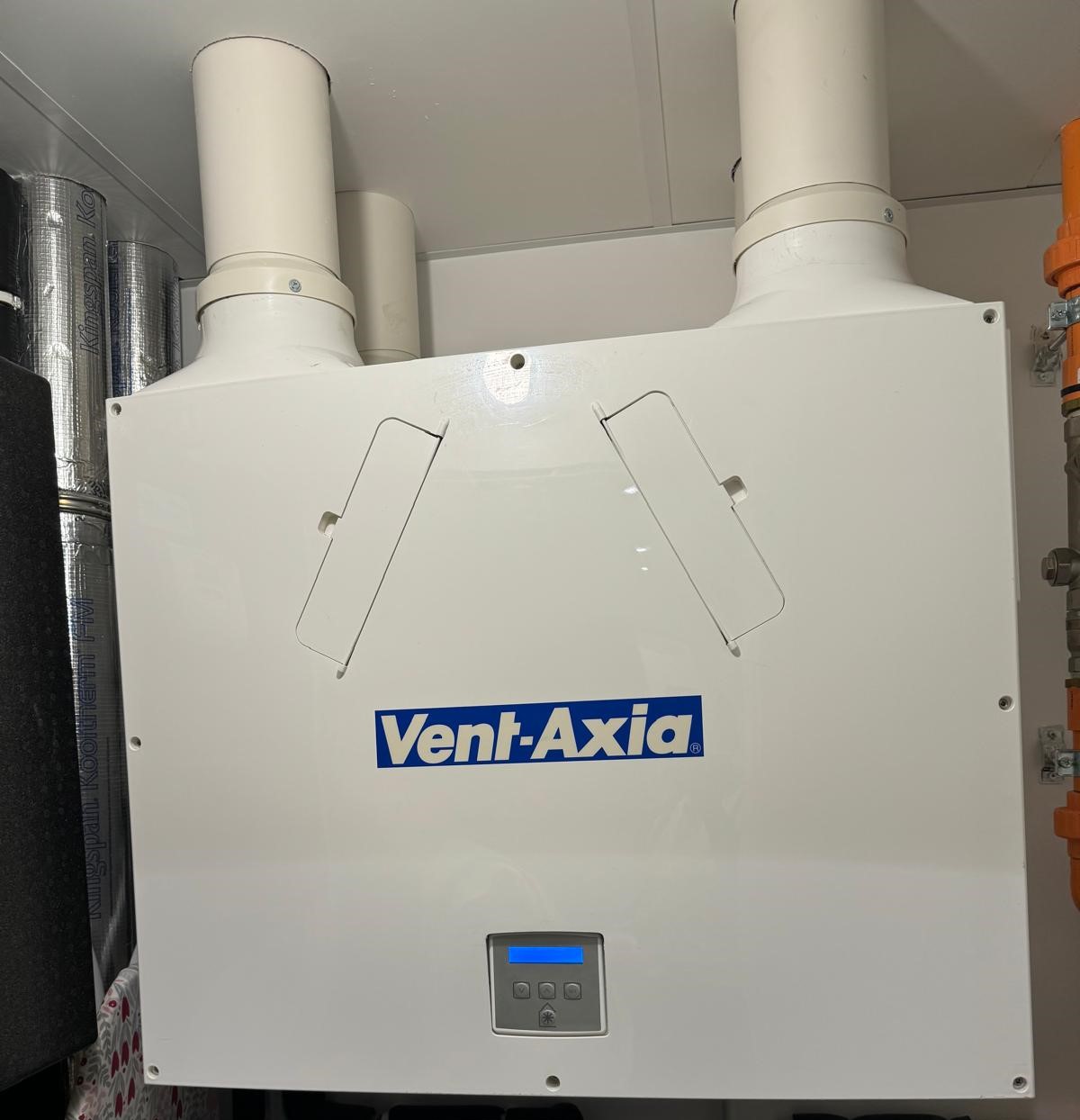
MVHR systems are designed to improve indoor air quality while conserving energy, by recovering heat from the outgoing air and supplying fresh, filtered air to the indoors, thereby addressing some of the most pressing concerns of ventilation and energy efficiency in buildings. But what exactly is an MVHR unit, and how does it work?
Understanding MVHR Units
An MVHR unit is a continuously running mechanical ventilation system which supplies fresh air to a building while extracting stale air by recovering heat from outgoing stale air to warm incoming fresh air, a process which significantly reduces the amount of energy needed to heat a building, making it both environmentally friendly and cost-effective.
As warm, stale air is extracted from the building, it passes through the heat exchanger and at the same time, fresh, cold air from outside is drawn in and also passes through the heat exchanger. The heat from the outgoing air is transferred to the incoming air through the heat exchanger without the two air streams mixing, ensuring that the fresh air entering the building is pre-warmed.
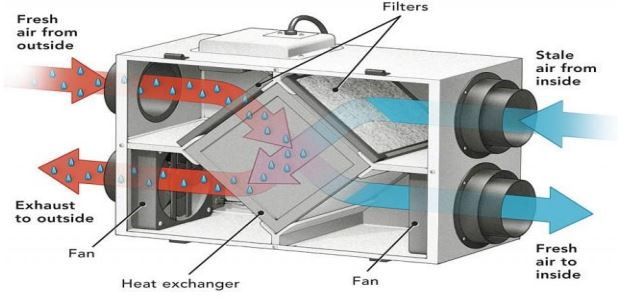
MVHR units also assists in cooling a building. They come equipped with a summer bypass mode where the pre-heat system of the heat exchanger is bypassed, allowing fresh air to be brought into the apartment without being warmed by the outgoing air. This is a method which is particularly useful during the summer, as it ensures that the incoming air does not pick up heat from the extracted air, thereby helping to maintain a cooler indoor environment.
Where an MVHR system is installed, it is not advisable to leave windows open for ventilation because, for an MVHR system to be effective, the building needs to be airtight through proper insulation and sealing of the building fabric. This is because excessive air leakage can undermine the system’s efficiency and negate its energy savings capability.
The level of airtightness required for effective functioning of an MVHR system is the reason why the system is better adapted in new buildings than in old buildings, because adaptation of airtightness in older buildings can be challenging.
Also, leakages, either through the building fabric such as walls, windows, ceilings and door gaps, or inside the ductwork, can significantly reduce the efficiency of an MVHR system and undermine the system's ability to maintain desired indoor temperatures and recover heat effectively.
MVHR systems typically consist of two main components: the box and the ventilation network.
MVHR systems are useful for ventilation and cooling of a building but for significant cooling needs, especially during summer periods, MVHR systems should be used in conjunction with dedicated cooling systems such as air conditioners.
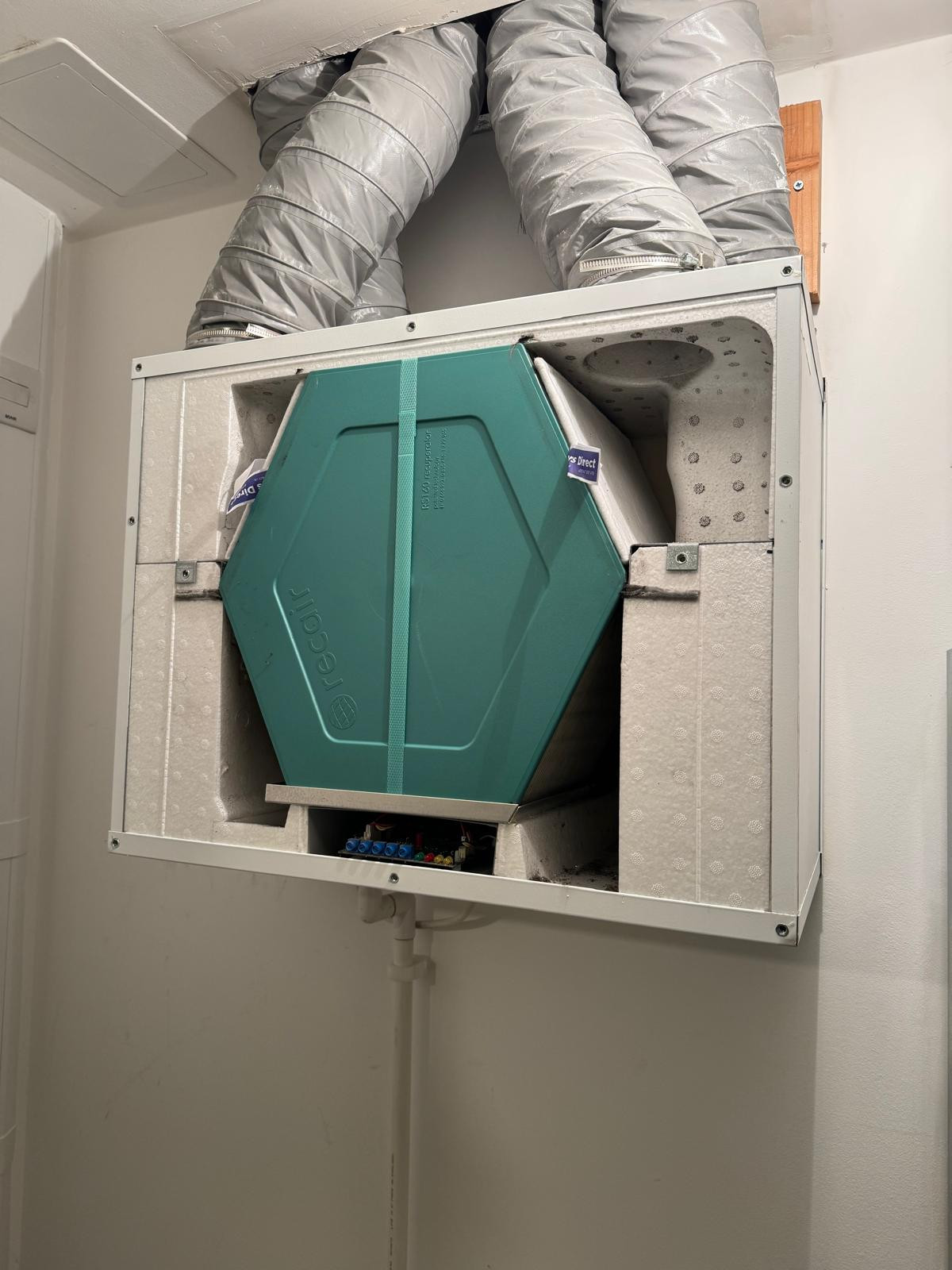
Installation and maintenance of an MVHR system is not a simply a DIY task. It requires professional expertise to ensure that the system is correctly installed and taken care of because any mistake can lead to inefficiencies, noise issues, and potential system failures.
It is necessary when Installing an MVHR unit to consult experts with the required expertise to do the installation and also to ensure that this unit is frequently maintained, otherwise there could be a damage to the MVHR unit and could incur added repair or replacement cost to the occupant.
MVHR units do not always come cheap. Initial cost of purchasing and installation varies between £700 to £2500, but the long-term savings on energy bills and the benefits to health and comfort often justify the investment as long as the unit does not break down before its lifespan. An MVHR unit can last between 15 to 20 years and if well-maintained can even exceed this range, providing reliable service for up to 25 years or more.
Proper education and guidance on the system's operation and settings adjustment is necessary for units’ longevity.
Damages to MVHR Units usually occurs as a result of poor handover to occupants after installation. This results in systems that occupants did not understand or know how to control and operate the system nor were they aware of the consequences of bad or non-maintenance of the unit.
For instance, a non-communication of the procedure of manually activating the summer by-pass of the heat exchanger during warm weather could exacerbate overheating and tempt occupants in switching off the unit, an action which would aggravate faults on the unit and eventually make it stop running.
If you are not sure about what to do or how to operate your MVHR unit, it is important to consult competent specialists who would be willing to assist in this regard.
Regular maintenance is crucial towards ensuring the efficiency and longevity of an MVHR system.
Filters have to be cleaned or replaced periodically to maintain air quality and system performance. It is recommended that MVHR filters are inspected and cleaned every 6 months, and replaced every 12 months. It is not necessary to switch off the unit while doing this.
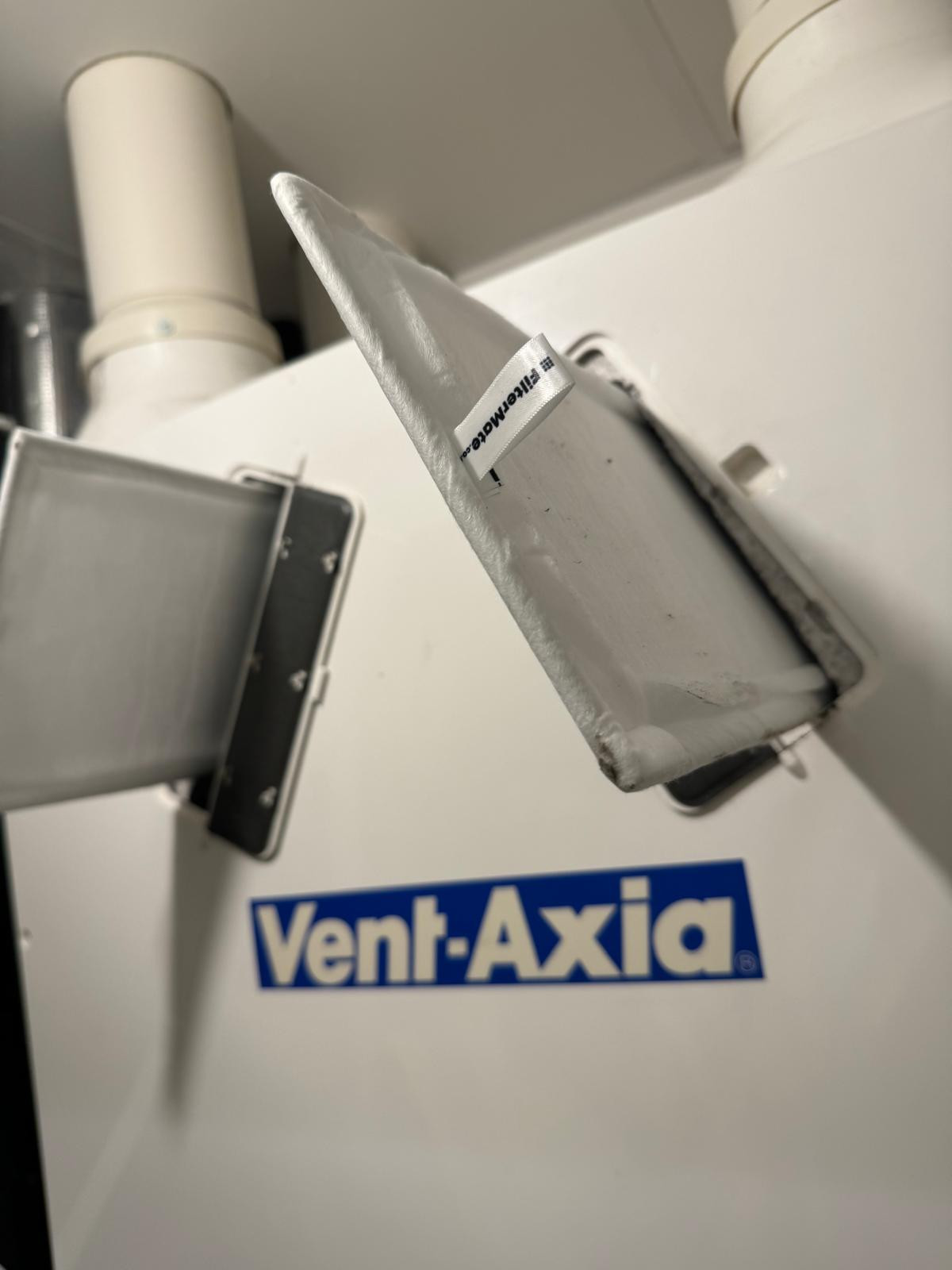
Heat exchanger and fans should be checked and serviced to keep the system running smoothly. Heat exchangers of the units can be maintained by checking for damages, blockage, by cleaning and regular inspection of the security of components in order to maintain optimal performance.
While manufacturers may give between 2 to 7 years warranty, common experience suggest that many MVHR units break down just immediately after the warranty expires. The fault? Not just down to manufacturers who are looking to sell more of their products; but these avoidable problems are often because occupants do not place adequate attention to the maintenance of the units. A stitch in time saves nine!
In order to maintain a balanced ventilation within the dwelling, it is important for occupants to keep the unit switched on at all times and not to turn off the system when it is not necessary. Occupants may be tempted to switch off the MVHR system if they perceive it as too noisy, too draughty or too expensive to run.
Turning the unit off may cause long term damage to the unit and building fabric and may cause unnecessary expenditure for the occupant either in repair or in the purchase of a new unit.
Also, where an MVHR unit is installed and running, it is not advisable to open the window as this would create draft and reduce the efficiency of the unit drastically.
Mechanical Ventilation with Heat Recovery (MVHR) units offer numerous benefits, but they also come with their own set of drawbacks
Below are advantages of installing MVHR suystemsin your property
MVHR units are very energy efficient. They recover up to 90% of the heat from the outgoing air, which drastically reduces the energy required to heat a building leading to lower energy bills and a smaller carbon footprint.
MVHR units come with special air filters to remove air pollutants, and the constant air exchange which takes place by continuously replacing stale indoor air with fresh, filtered outdoor air helps to reduce indoor pollutants, humidity, and allergens, creating a healthier living environment.
MVHR units contribute to a more comfortable living environment by maintaining a consistent supply of fresh air and stable indoor temperatures.
While Mechanical Ventilation with Heat Recovery (MVHR) units offer numerous benefits, they can also come with potential issues. Understanding these common problems can help occupants and homeowners anticipate and address them effectively, thereby ensuring the unit operates optimally. Some of the problems are discussed below:
MVHR technology was developed for new, energy efficient houses that can be designed around the technology - and it does not adapt easily to the retrofitting of existing dwellings.
Each building has unique ventilation requirements, and a one-size-fits-all approach cannot be implemented as this leads to system inefficiencies. Incorrectly sized units, poorly planned ductwork, and inadequate consideration of airflow dynamics often result in suboptimal performance.
For instance, an imbalanced system, where the supply and extract airflows are not correctly calibrated, can cause whistling or other noises at vents.
MVHR systems require regular maintenance to function correctly. Neglecting tasks like cleaning or replacing filters, checking the heat exchanger, and ensuring that fans are operating smoothly can lead to a decline in performance and potential system breakdown. Over time, dust and debris can clog filters, reducing airflow and the system's ability to recover heat efficiently.
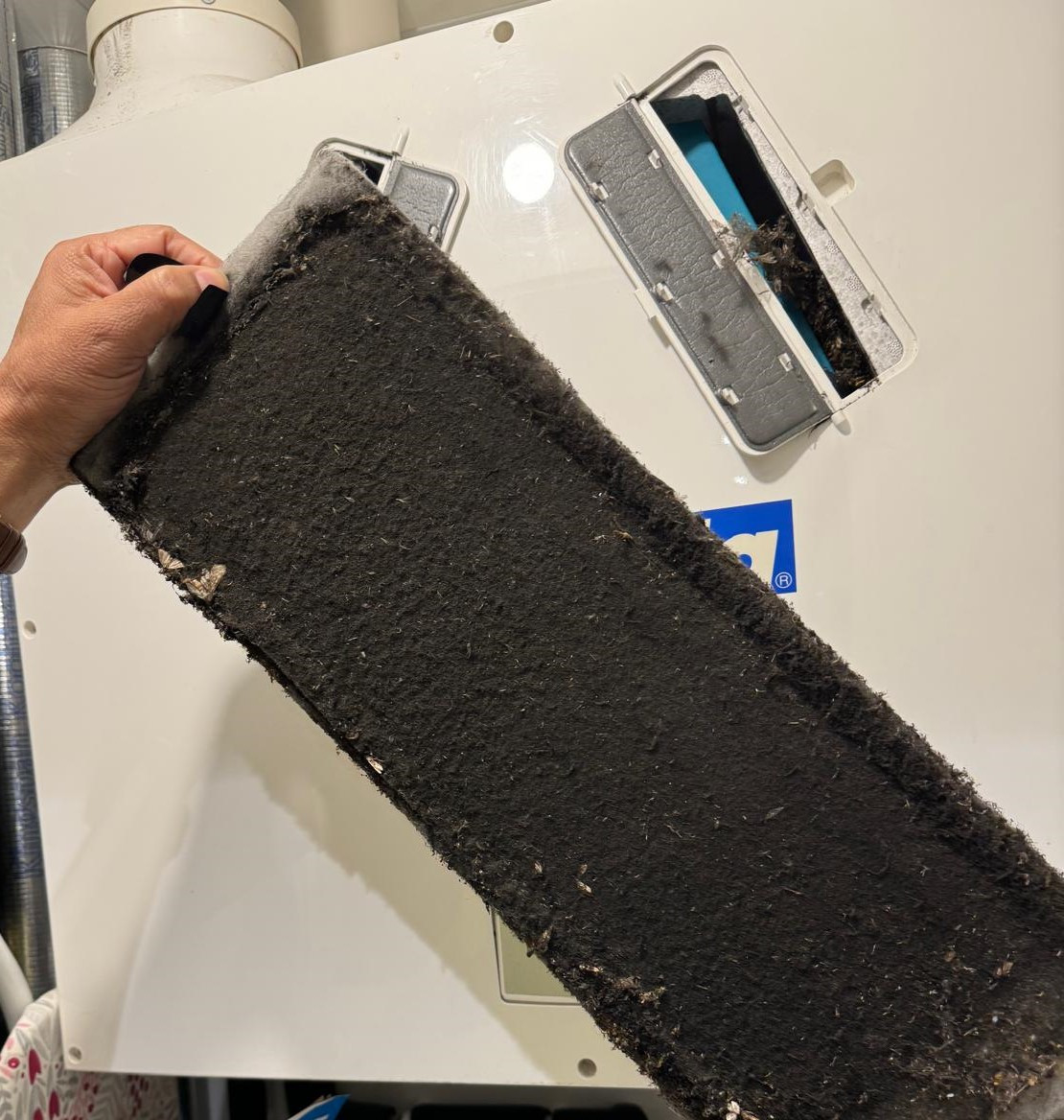
Blocked or dirty filters can significantly impact an MVHR unit's performance. When filters become clogged, the system has to work harder to circulate air, leading to increased energy consumption and reduced heat recovery efficiency. Regular filter maintenance is crucial to prevent this issue. Filters need to be replaced or cleaned every 6 months in order to maintain good air quality and system performance.
MVHR units are installed with condensate drain to manage moisture that condenses within the system. If this drain becomes blocked or is not properly installed, it can lead to water buildup inside the unit. This can cause damage to the unit itself and create a breeding ground for mould and bacteria.
While MVHR systems are generally designed to operate quietly, improper installation or component malfunctions such as fan or casing wear and tear can result in vibrations in the system and excessive noise which can disrupt the smooth running of the unit.
Over time, without adequate care, the heat exchanger can become clogged with dust and dirt, reducing its ability to transfer heat between the outgoing and incoming air streams.
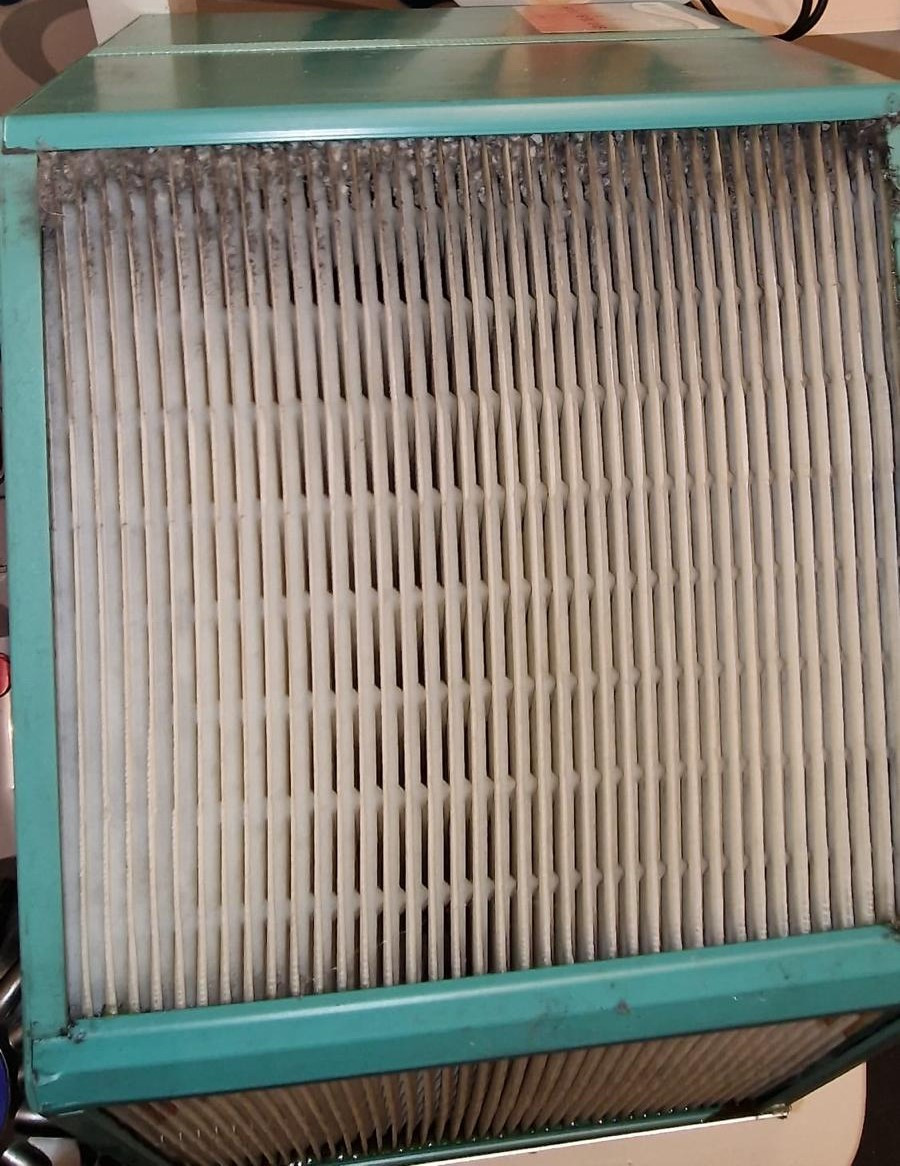
MVHR units bring significant benefits to modern homes, particularly in terms of energy efficiency and air quality. However, their high initial cost, complex installation, regular maintenance requirements, and other potential drawbacks must be carefully considered.
Understanding an MVHR unit together with its pros and cons, is crucial in making an informed decision and ensuring that the system, if chosen, is implemented and maintained correctly for optimal performance.
Whether you're looking to install or maintain an MVHR unit, it is worth considering its numerous benefits and problems must be weighed.
Do contact ARC Facilities for more information about installing and maintaining your MVHR units